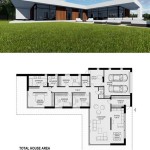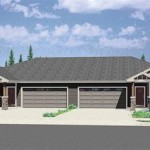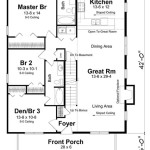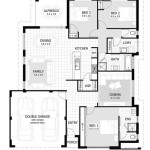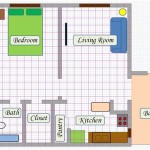Floor Plans For Tiny Home
The tiny house movement has gained momentum in recent years, as people seek more sustainable, affordable, and portable living spaces. Floor plans for tiny homes are essential in maximizing the limited square footage and creating functional and comfortable living spaces. Here's a comprehensive guide to help you design the perfect floor plan for your tiny home:
1. Determine Your Space Requirements
Start by assessing your essential needs and determining the minimum space required for sleeping, cooking, dining, bathing, and storage. Consider your lifestyle, daily routines, and the number of people who will be living in the home. This will help you establish the appropriate size and layout for your floor plan.
2. Establish a Functional Layout
The layout of your tiny home should prioritize functionality and efficient use of space. Consider an open floor plan that combines multiple living areas to create a sense of spaciousness. Utilize vertical space with loft sleeping areas or built-in storage. Divide spaces with partitions, curtains, or sliding doors to maintain privacy and separation.
3. Design a Compact Kitchen
The kitchen is a crucial area in a tiny home, yet it requires careful planning. Opt for space-saving appliances, such as a two-burner stovetop and a compact refrigerator. Utilize under-sink storage, wall-mounted cabinets, and fold-away tables to maximize functionality. Consider incorporating a multi-purpose island that serves as both a cooking surface and a dining table.
4. Create Comfortable Sleeping Quarters
Sleeping arrangements are vital in a tiny home. Consider a loft bedroom for additional space and a sense of separation. Utilize built-in storage under the bed or within the stairs leading to the loft. If space is extremely limited, opt for a Murphy bed that folds away into a wall when not in use.
5. Design an Efficient Bathroom
Bathroom design in a tiny home requires clever space optimization. Install a compact toilet, a space-saving shower stall, and a wall-mounted sink. Utilize shelves, baskets, and mirrors to create additional storage and make the space feel larger. Consider a composting toilet or a waterless urinal to conserve water and reduce odor.
6. Maximize Storage Space
Storage is crucial in a tiny home. Utilize every available space with built-in shelves, drawers, and overhead cabinets. Consider under-bed storage, vertical wall units, and adjustable organizers to maximize space utilization. Make use of multi-purpose furniture, such as ottomans with hidden storage or beds with built-in drawers.
7. Plan for Natural Lighting and Ventilation
Natural lighting and ventilation are essential for creating a comfortable and healthy living space. Incorporate large windows or skylights to maximize natural light. Utilize cross-ventilation by placing windows and vents opposite each other to promote airflow. Install a ceiling fan or a small air conditioning unit for additional ventilation, especially in warm climates.
Designing a floor plan for a tiny home requires careful planning and creative space utilization. By considering your specific needs, establishing a functional layout, and incorporating smart storage solutions, you can create a cozy and efficient living space that meets your lifestyle and budget.

Affordable Tiny House 18 X 28 Adu In Law Cabin

Tiny House Floor Plans With Lower Level Beds Tinyhousedesign

16x16 Tiny House 446 Sq Ft Floor Plan Model 18

27 Adorable Free Tiny House Floor Plans Craft Mart

27 Adorable Free Tiny House Floor Plans Small

Tiny House Floor Plans 32 Home On Wheels Design

10 X 20 Tiny Home Designs Floorplans Costs And Inspiration The Life

2 Bedroom Tiny House Plans Blog Eplans Com

Tiny House Plan Examples

Tiny House Floor Plans Design Your

